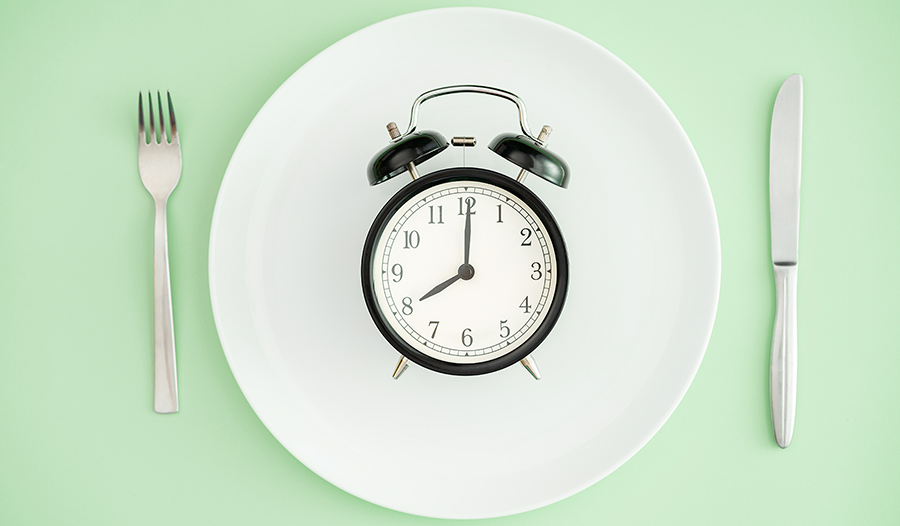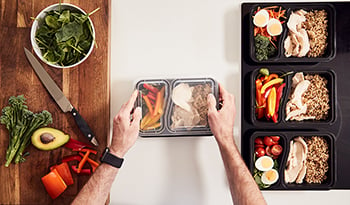Intermittent Fasting vs. Detox Diets: What You Need To Know

Key Takeaways
- What is Intermittent Fasting? IF is a pattern of eating that cycles between periods of fasting and eating. The most popular method is 16/8 (fasting for 16 hours, eating during an 8-hour window).
- Best Way to Detox: While fasting mobilizes stored toxins, strict water fasting can overwhelm the liver. A 10-day detox diet that includes fresh vegetable juices or greens powders is recommended to provide the nutrients needed for safe detoxification.
- Dietary Guidelines: During your eating window, focus on leafy greens, low-mercury fish, and healthy oils. Strictly avoid processed foods, sugar, gluten, and alcohol.
- Hydration is Critical: Drink plenty of water and unsweetened herbal teas to aid elimination. Avoid coffee, sodas, and sports drinks.
- Liver Support: To prevent toxicity from released heavy metals and pesticides, support your liver with supplements like Milk Thistle, NAC (N-acetylcysteine), and Vitamin C.
What Is Intermittent Fasting?
Intermittent fasting refers to various meal timing schedules that cycle between voluntary fasting over a given period and eating. Interestingly, many religions employ forms of intermittent fasting, e.g., Ramadan (Islam), Vrata (Hinduism), Yom Kippur (Judaism), and Fast Sunday (The Church of Jesus Christ of Latter-day Saints).
There are three methods of intermittent fasting:
- Alternate-day fasting
- Periodic fasting (e.g., every Sunday or two days fasting per week)
- Time-restricted feeding
Of these, time-restricted feeding has become the most popular, with the 16/8 method being most widely used. In the 16/8 method, a person will fast for 16 hours each day and eat during an 8-hour window. That can be accomplished by skipping breakfast, having the first meal around noon, and not eating anything after an early dinner.
The real key to the health benefits of intermittent fasting is what you eat during your eating window. Obviously, it doesn’t work if you binge on excess calories or unhealthy food. If you employ principles of healthful eating during your window, then intermittent fasting can be very effective in improving metabolism and promoting weight loss.
The 16/8 method can be tough, so I modify it a bit as I don’t see a problem drinking water, tea, and other non- or low-caloric beverages during the 16-hour fast. Including these beverages during the 16-hour non-feeding window can help reduce hunger levels and encourage the consumption of health-promoting beverages and adequate hydration.
What Are The Benefits Of Intermittent Fasting?
The benefit of intermittent fasting on weight loss has been demonstrated in controlled clinical trials.1 Best results, however, are obtained in people who are also involved in resistance training (e.g., lifting weights or other strength-training) as that has been shown to improve body composition by decreasing fat mass and at least preserving muscle mass during weight loss.2 Intermittent fasting can also improve blood sugar control and cholesterol levels, but a lot depends on the quality of the food choices.3
During Ramadan, Muslims fast every day from dawn to sunset. It is a form of intermittent fasting where the feeding window is limited to just before sunrise and just after sunset. Meal and menu planning is critical, but Ramadan-type intermittent fasting can be a very healthful practice. Specifically, in a detailed scientific review, researchers concluded Ramadan-type intermittent fasting is effective in boosting mental function and immune function.4 It has also been shown to be helpful in decreasing body weight and relative fat mass. Other forms of intermittent fasting (e.g., the 16:8 method) seem to be more effective in improving overall body composition by maintaining muscle mass.5
The risk with this sort of intermittent fast is binge eating after fasting all day. To help prevent this from occurring, I recommend 5 grams of PGX before meals. PGX is a very unique dietary fiber that is clinically proven to promote satiety and help people control food intake to proper portion size.
Does Fasting Promote Detoxification?
Yes, fasting is one of the quickest ways to increase the elimination of wastes, promote detoxification, and enhance the healing processes of the body. Although therapeutic fasting is probably one of the oldest known therapies, it has been largely ignored by the scientific community.
Caution must be used, however, if a person has significant levels of fat-soluble toxins like pesticides, heavy metals (lead, mercury, arsenic, etc.) stored in their fat cells. These sorts of toxins have been shown to be mobilized during a fast and raise blood levels. That could lead to increased toxicity to the brain and nervous system. One of the concerns with strict water fasting is that a person may not receive the necessary nutrients to maintain the detoxification system. The liver needs a steady supply of protein, vitamins, and minerals to produce the substances that make detoxification happen. For this reason, I prefer juice fasts and detoxification diets to a strict water fast. And, whether you do a water fast, juice fast, or detox diet, follow the critical guidelines and dietary supplement recommendations for supporting the liver and detoxification reactions.
What Is A 10-Day Detox Diet?
Instead of fasting, consider a 10-day detox diet (that ideally includes a 3-day juice fast in the middle). I think this strategy is actually the best approach as it allows for the proper detoxification and elimination of toxic compounds. The diet should be at a caloric deficit. We want fat cells to break down and release stored toxins, but we don’t want to overwhelm our detoxification system.
What Is A Juice Fast?
By strict definition, during a fast, only water is consumed. If you are drinking fresh fruit or vegetable juice, this practice is technically known as an elimination diet rather than a fast, but let’s just call it a “juice fast” for simplicity. In my opinion, most healthy people do not need to go on a strict water fast to aid in detoxification. Instead, a three-to-five-day fresh fruit and vegetable juice fast actually provides the greatest benefit. An alternative to drinking fresh fruit or vegetable juice is to use dehydrated powdered “greens” drink mixes, such as those containing spirulina, wheatgrass juice, or barley greens.
Only fresh fruit and vegetable juices (ideally prepared from organic produce) or reconstituted powdered drink mixes should be consumed for three to five days. Generally drink four 8- to 12-ounce glasses throughout the day.
Virtually any fresh juice provides support for detoxification; however, some of the better juices to consume during a fast include juice from lemons, beets, carrots, kale, celery, and sweet potatoes. You can sweeten it if necessary with apple, and you can spice it up with ginger or turmeric. In addition to the fresh juice, pure water should also be consumed. The quantity of water should be dictated by thirst, but at least four 8-ounce glasses should be consumed every day during the fast.
“Do’s And Don’ts'' Of A Detox Diet:
| Do's | Don'ts |
|---|---|
Vegetables, especially leafy greens | Refined processed foods |
Legumes (beans and lentils) | High sugar foods and beverages |
Whole fruit, especially berries | Alcohol and diet sodas |
Non-gluten grains | Wheat and gluten |
Low-mercury fish such as wild salmon, smaller species of ocean fish like sardines and herring, and rainbow trout | High-mercury fish such as swordfish, marlin, orange roughie, shark, and larger tuna. |
Organic, grass-fed meat and dairy (optional) | Grain-fed and non-organic dairy |
Potato and corn chips | |
Bad oils like corn, safflower, soy, margarine, and shortening |
Tips To Support A 10-day Detox Diet:
- Reduce calorie intake to approximately 1,200 calories per day to safely release stored toxins.
- Include these foods regularly as they contain the nutrients your body needs to produce and activate the dozens of enzymes involved in the various phases of detoxification:
- Follow the guidelines below for dietary supplements to support detoxification.
What Are Some Important Guidelines For A Fast Or Detox Diet?
It is extremely important to support detoxification reactions. This goal is partly done by either a fresh juice fast or a 10-day detox diet over a water fast, but I also believe that it is important to provide additional nutritional support when needed during a fast, as stored toxins in our fat cells are released into the system. Here are some critical general guidelines:
- No coffee, soft drinks, sports drinks, or any other processed beverages should be taken. Herbal teas can be quite supportive of a fast, but they should not be sweetened with anything other than perhaps stevia or allulose.
- Drink plenty of pure, clean water.
- Exercise is not usually encouraged while fasting. It is a good idea to conserve energy and allow maximal healing. Short walks or light stretching are useful, but heavy workouts tax the system and inhibit repair and elimination.
- Cleansing the skin with lukewarm water is encouraged, but extremes of temperature can be tiring. Deodorants, soaps, sprays, detergents, synthetic shampoos, and exposure to other chemicals should be avoided. These only hinder elimination and add to the body’s detoxification and elimination burden.
- Rest is one of the most important aspects of a fast. A nap or two during the day is recommended. Less sleep will usually be required at night since daily activity is lower.
- Body temperature usually drops during a fast, as do blood pressure, pulse, and respiratory rate—all measures of the slowing of the metabolic rate of the body. It is important, therefore, to stay warm.
What Supplements Support Health During A Fast Or Detox Diet?
It is important to provide the liver with exceptional support to allow it to perform its vital detoxification role, especially during a fast or dietary detox. Without proper support, detoxification can go awry and increase the risk for serious health issues.
Foundation Supplements
- High-potency multiple vitamin and mineral formula
- Vitamin D3: 2,000 to 4,000 IU per day
- Fish oil providing EPA+DHA+DPA 1,000 to 2,000 mg per day
- Grapeseed or pine bark extract: 150 to 300 mg per day
Additional Recommendations
- Vitamin C: 500 to 1,000 mg per day.
- Soluble fiber (PGX®, apple pectin, guar gum, etc.): 3 to 5 grams daily
- N-acetylcysteine (NAC): 500 to 1,000 mg per day
- Lipotropic agents. Choose one of the following:
- Choline: 1,000 mg per day
- S-adenosylmethionine (SAMe): 200 to 400 mg per day
- Alpha-lipoic acid: 200 to 600 mg per day
- Milk thistle. Choose one of the following:
- Siliphos®: 240 to 360 mg per day
- Milk thistle (Silybum marianum) extract (standardized to contain 80% silymarin): 100 to 200 mg three times daily
In addition, many major brands offer specific dietary formulas to support detoxification that include many of the compounds listed above.
References:
- Fanti M, Mishra A, Longo VD, Brandhorst S. Time-Restricted Eating, Intermittent Fasting, and Fasting-Mimicking Diets in Weight Loss. Curr Obes Rep. 2021 Jan 29.
- Sandoval C, Santibañez S, Villagrán F. Effectiveness of intermittent fasting to potentiate weight loss or muscle gains in humans younger than 60 years old: a systematic review. Int J Food Sci Nutr. 2021 Jan 4:1-12
- Borgundvaag E, Mak J, Kramer CK. Metabolic impact of intermittent fasting in patients with type 2 diabetes mellitus: a systematic review and meta-analysis of interventional studies. J Clin Endocrinol Metab. 2020 Dec 15:dgaa926.
- Cherif A, Roelands B, Meeusen R, Chamari K. Effects of Intermittent Fasting, Caloric Restriction, and Ramadan Intermittent Fasting on Cognitive Performance at Rest and During Exercise in Adults. Sports Med. 2016 Jan;46(1):35-47. doi: 10.1007/s40279-015-0408-6. PMID: 26438184.
- Correia JM, Santos I, Pezarat-Correia P, Silva AM, Mendonca GV. Effects of Ramadan and Non-ramadan Intermittent Fasting on Body Composition: A Systematic Review and Meta-Analysis. Front Nutr. 2021 Jan 26;7:625240.
DISCLAIMER:This Wellness Hub does not intend to provide diagnosis...
















































































 Table of Contents
Table of Contents
















